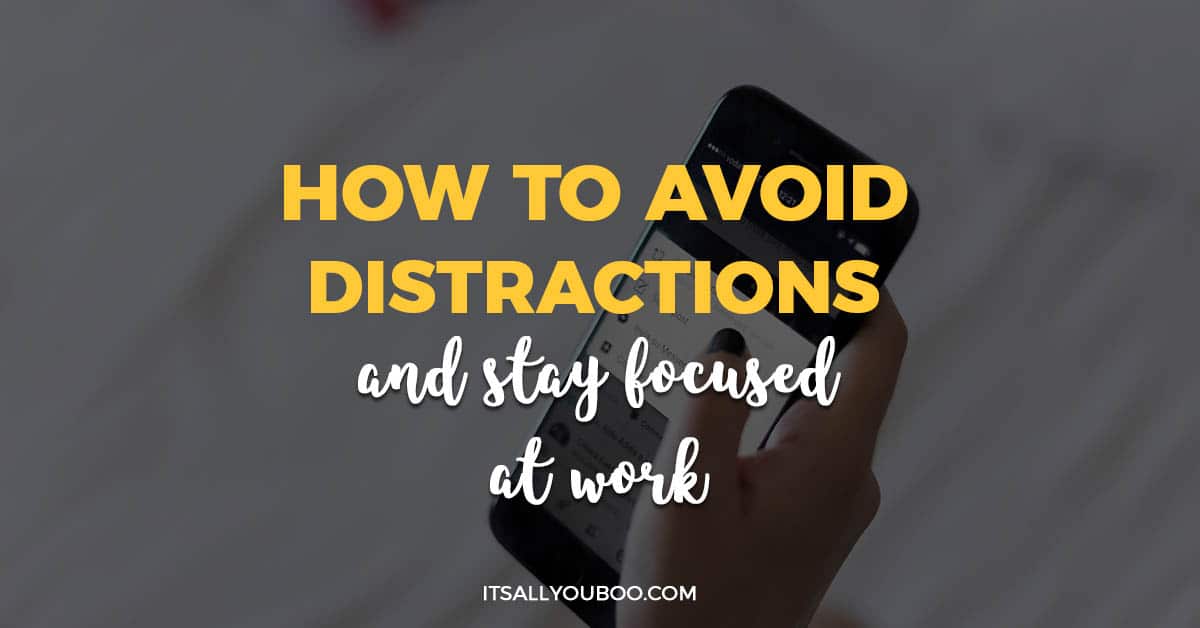

Then try to have 15 minutes of uninterrupted time. Give yourself a couple of minutes to check notifications, emails, and texts.

One way to limit distractions and increase focus is to take a technology break so that you can focus on the task at hand.

While some interruptions are difficult to avoid, you do have control over others. Prioritize each task and glance at your list throughout the day if your mind begins to wander. Organizing your day and making a plan is a good way to stay on track. The act of planning activities decreases the burden on the brain because it frees you from the worry of unfinished tasks. Research shows that when you have a written plan of action, it increases productivity. It may sound a little obvious but start with a to-do list. So, how can you avoid distractions at work without switching off your phone and laptop altogether? Here are ten ways to stop getting distracted and increase your focus at work. While employers are actively trying to find ways to limit distractions, some things you can’t avoid meetings, emails, and calls are typically part of the job. While it’s easy to place all the blame on technology, it’s clear other factors are at play, including:ġ0 Tips to Avoid Distractions at Work and Stay Focused A report from CareerBuilder shows that the top workplace distractions are cell phones and texting. Unsurprisingly, all of this can impact the quality of work.Īt work, the temptation of distraction is real. Attention distraction can lead to higher stress levels as well as lower mood and productivity. Children, family members, barking dogs, and a knock at the door are all hard to ignore. With an increasing number of people working remotely, there are even more distractions to handle. That email from a client or a quick question from a colleague shifts your focus and can put the brakes on productivity. You can see how all those minutes add up to a fair amount of lost productivity throughout the day. A study from the University of California shows that, on average, it takes 23 minutes and 15 seconds to return to your original task after an interruption. It’s easy to think that you jump straight back into what you were working on with complete focus when you’re interrupted during a task. Request Appointment The Most Common Workplace Distractions that Kill Productivity


 0 kommentar(er)
0 kommentar(er)
